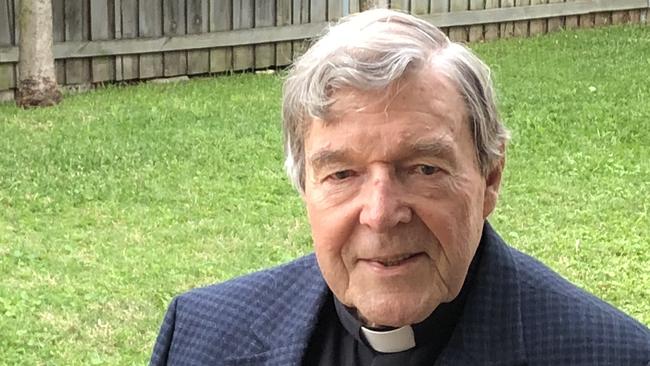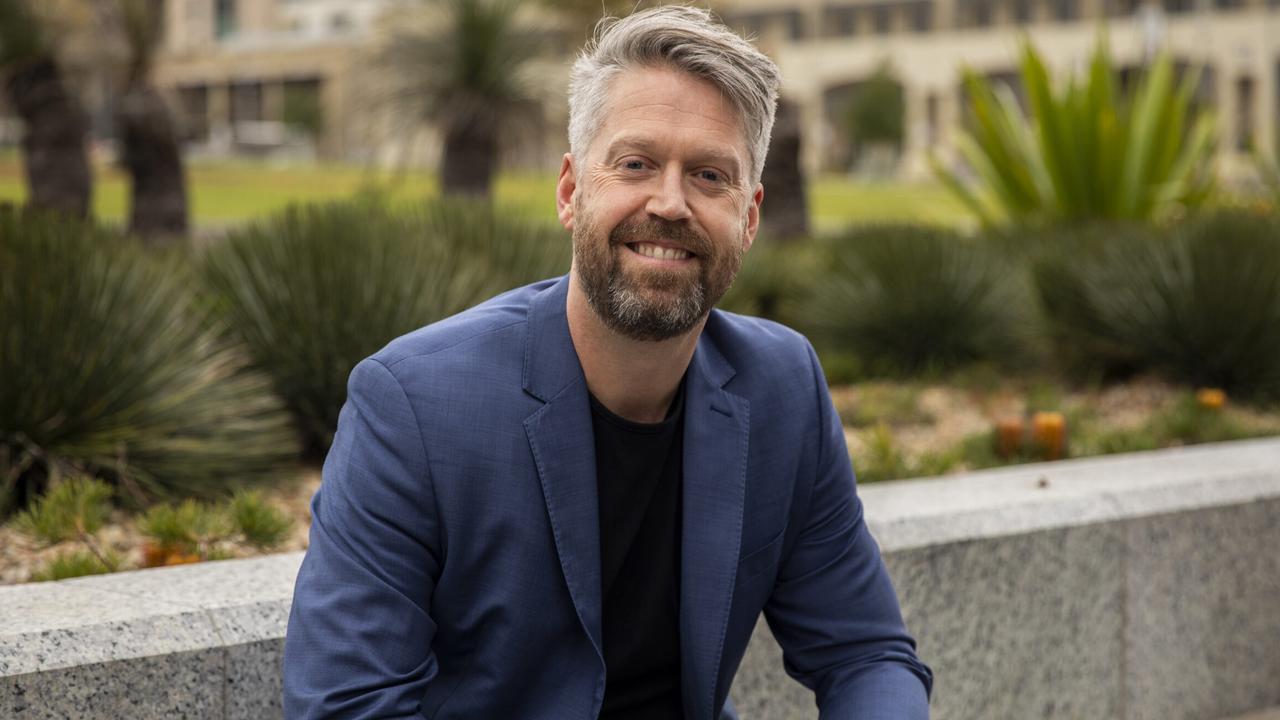George Pell appeal judge’s shock admission: ‘I’m no criminal lawyer’
One of the two judges who upheld George Pell’s wrongful conviction stated publicly that he was not a criminal lawyer.

One of the two judges of the Victorian Court of Appeal who upheld George Pell’s wrongful conviction for assaulting choirboys was appointed to the bench after stating publicly that he was not a criminal lawyer.
The Victorian government selected Court of Appeal president Chris Maxwell after a career that included working for a federal Labor frontbencher and running a politically charged legal challenge against the Howard government.
Less than three years before his appointment, Justice Maxwell told a Senate committee he was not a criminal lawyer and deferred to another lawyer with expertise in this area of law.
In November 2002, when he was the immediate past president of Liberty Victoria, he gave evidence to a Senate inquiry into a proposed counter-terrorism law along with Gregory Connellan, who succeeded him as head of Liberty Victoria.
The Hansard record shows the then Mr Maxwell told the Senate inquiry: “As I was president when we sent in our submission, Greg and I will deal with the issues together. Greg is a criminal lawyer, which I am not,” he told the committee.
In a later part of his testimony, he said Mr Connellan was “particularly well informed on issues of criminal procedure and investigation … Greg will deal with the criminal stuff”.
When discussing whether a terror suspect could be detained, he said: “Greg can say whether this is feasible as a matter of criminal procedure.”
In a ruling that has raised concerns about Victoria’s system of criminal justice, the High Court this month unanimously overturned Justice Maxwell’s joint judgment with Chief Justice Anne Ferguson in the Pell case and freed the cardinal after 405 days in jail.
Legal academic Mirko Bagaric said he would never suggest that Justice Maxwell’s appointment was other than meritorious but he was surprised, given the complexity of the Pell case, that the majority judges had not deferred to dissenting judge Mark Weinberg, who he said was the nation’s greatest authority on criminal law.
“I was surprised that the two other judges thought that their analysis, and their take on the facts as applicable to the law, were more likely to be superior and more accurate than that of the leading criminal jurist in the country,” said Professor Bagaric, who is dean of law at Swinburne University.
Chief Justice Ferguson is a former commercial litigator and partner at national law firm Allens. She has never practised as a barrister. She was appointed chief justice in 2014, four years after joining the Supreme Court.
Both judges preside over courts that deal with all areas of law.
The Victorian opposition said democracy in the state relied on the integrity and capacity of its institutions and the leaders who run them. “All should be open to examination and review,” said opposition legal affairs spokesman Edward O’Donohue.
“The community is reasonably asking questions regarding the Victorian Court of Appeal majority decision, which has now been overturned by the High Court in a unanimous 7-0 decision,” he said.
The exoneration of Cardinal Pell is the latest in a series of setbacks for Victoria’s justice system and the Court of Appeal.
In the “Lawyer X” case, the High Court helped trigger a royal commission with another unanimous judgment that said the decision of Victoria Police to register barrister Nicola Gobbo as a police informant was “atrocious” and “reprehensible”.
In 2018, the High Court — again unanimously — overturned the Court of Appeal’s decision in a criminal case known as Falzon and issued a warning about the need to follow precedent.
The Court of Appeal, this time consisting of other judges, had in effect “refused to follow those earlier decisions while purporting to observe them”, the High Court said. “This was not a course properly open to the majority and it should not be repeated,” the High Court said.
Justice Maxwell’s concession that he was not a criminal lawyer took place less than three years before he was appointed in July 2005 to lead the Court of Appeal.
As well as working as a barrister in London and a silk in Melbourne, he had been principal private secretary to former Labor senator Gareth Evans, who was attorney-general and foreign minister under Bob Hawke.
Justice Maxwell had come to national prominence in 2001 when he and former Greens candidate Julian Burnside QC ran an unsuccessful challenge against the Howard government’s handling of the Tampa affair.
According to a contemporary account of his appointment in the Victorian Law Institute Journal, former Labor attorney-general Rob Hulls selected Justice Maxwell straight from the Bar ahead of well-respected legal figures including a future High Court judge. The unsuccessful candidates for the top job on the Court of Appeal, according to the Law Institute Journal, reportedly included federal Labor’s Mark Dreyfus QC, who had not yet been elected to parliament, and Geoffrey Nettle, who was already a judge of the Court of Appeal.
Justice Nettle was appointed to the High Court in 2014 by former federal attorney-general George Brandis and formed part of the unanimous bench that struck down Justice Maxwell’s joint ruling against Cardinal Pell.
His joint judgment, with Chief Justice Ferguson, was overturned on the ground that there was a significant possibility an innocent person had been convicted.
The Court of Appeal had believed the accusations of the man who had accused the cardinal of sexual assault, but the High Court ruled the unchallenged evidence of defence witnesses was inconsistent with the complainant’s testimony and this should have raised a reasonable doubt about the prosecution’s case.
Professor Bagaric said Australia’s system for appointing judges was “unfortunate” because there were no established criteria that judges needed to fulfil and no key performance indicators.
“It is really on the basis of the whims of the attorney-general. That leads, in my view, sometimes to not the most meritorious candidates being promoted,” he said.
Professor Bagaric said this was not a reference to Justice Maxwell but concerned the overall system of appointing judges.
“The whole reason why the black-box process of appointing judges can continue is because judges continue to be utterly unaccountable in terms of their decisions,” he said.
“Politicians know that, and that means they can appoint whoever they want.”



